Never before have the environmental issues facing the world presented a greater challenge. It is widely accepted that action urgently needs to be taken to slow the global warming process. The following section of our website is designed to provide an overview of the situation within the conveyor belt industry in Europe and an insight into the genuine efforts that we are making in Fenner Dunlop Conveyor Belting to achieve genuine sustainability and a very real reduction in carbon footprint.
A simple rule: LONGER BELT LIFETIME = LESS WASTE
We focus on three key areas; product life cycle, the environmental impact of our products and production processes.
The amount of conveyor belting used (and discarded) annually represents the single biggest influence on the industry’s carbon footprint. Some 45,000 kilometers of non-biodegradable polyester and nylon fabric is manufactured and ultimately discarded every year, which is more than the circumference of our planet. Very conservatively, this represents some 150,000 tons in weight each year in Europe alone. The biggest single impact we can have is to continue to produce conveyor belts that can be used for up to four or five times longer than our competitors. Extending the product life cycle effectively reduces the amount of conveyor belting that needs to be manufactured in the first place while at the same time dramatically reducing the amount of worn out and damaged belt that is being consigned to the scrapheap and ultimately to landfill.
The positive impact this can have on the environment is truly amazing because it represents some 75,000 tons of conveyor belting that would not need to be made and transported thousands of kilometers each year. It also means that some 75,000 tons of rubber, polyester, nylon and all the associated chemicals would not have to be disposed of, most of which would be in a landfill.
- Extending the product life cycle effectively reduces the amount of conveyor belting that needs to be manufactured.
- Single-ply construction helps to maximise production efficiency and minimises the amount of power consumed.
- We were the first major conveyor belt manufacturer to achieve REACH compliance
ACCOUNTABILITY
AND RESPONSIBILITY
Sadly, many European conveyor belt manufacturers have chosen to ignore REACH, either completely or at least partially because of the impact on production costs. Worse still, although the majority of conveyor belting is imported from South East Asia, primarily China, manufacturers located outside of EU member states and the UK are not subject to REACH regulations or even EU regulations concerning the use of Persistent Organic Pollutants (POPs). They are therefore free to use unregulated raw materials even though those same materials may be entirely prohibited or at least have strict usage limitations within Europe.
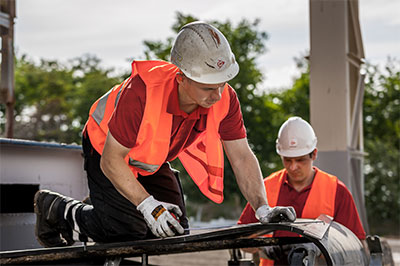
ACCOUNTABILITY
AND RESPONSIBILITY
Much of the machinery used to manufacture rubber industrial conveyor belts is old and not always as energy efficient as it could be. However, at Fenner Dunlop Conveyor Belting, we have invested many millions of euros replacing outdated machines and building new, technically advanced production lines. This reduces our carbon footprint by using less energy.
Finally, we have introduced new products such as our single-ply Ultra X range of belts that possess many environmental advantages. Firstly, having a single-ply construction helps to maximise production efficiency and minimises the amount of power consumed. Another advantage is that having a thinner but stronger carcass reduces the amount of rubber and polyester and nylon fabric used in the manufacturing process, all of which helps to reduce its carbon footprint.
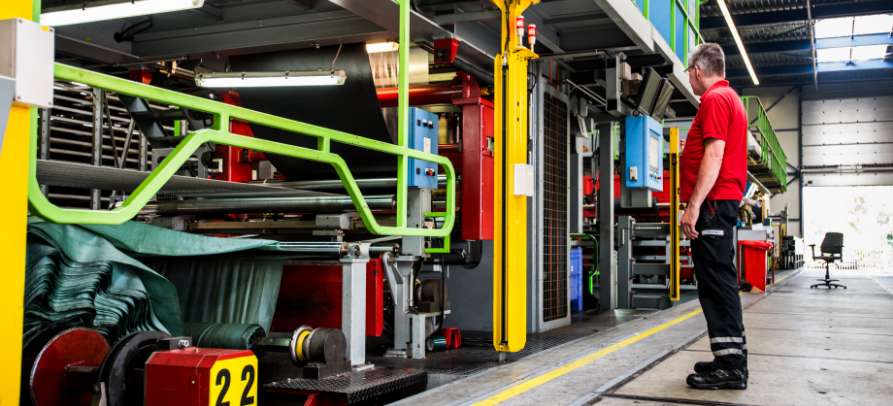
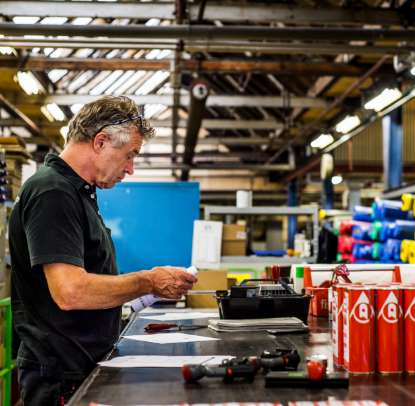
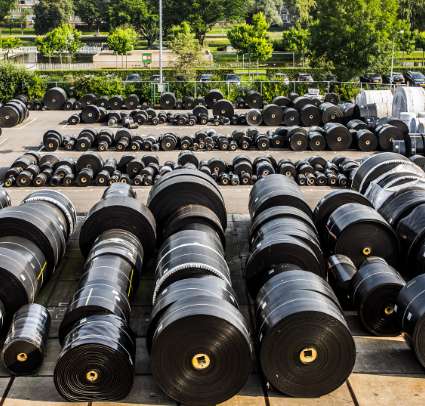
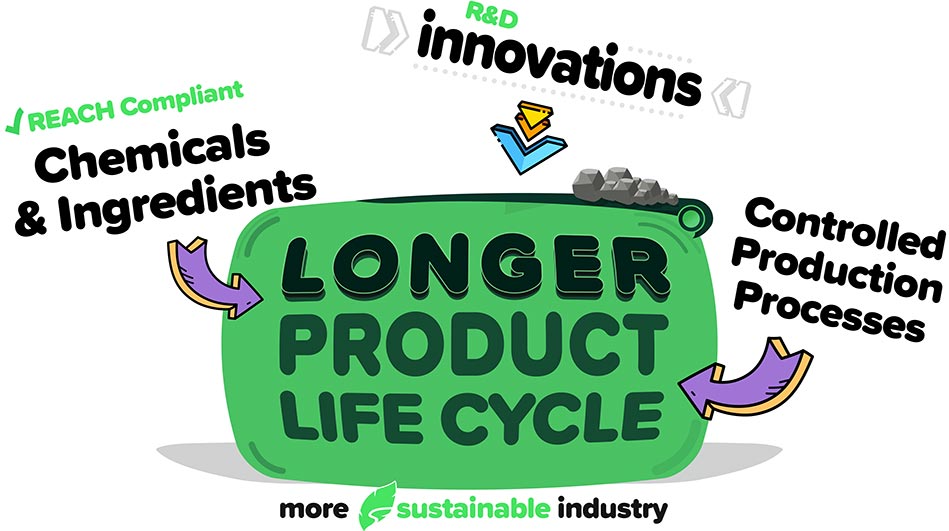
Do you believe that one day conveyor belts can be made from sustainable materials?
WE DO!
Discover Ultra X — the sustainable solution by Fenner Dunlop CB

